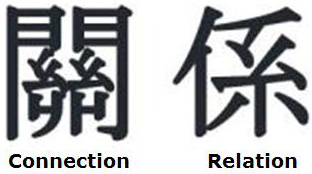 As I travelled a lot in South-East Asia ( especially Viet Nam), cultural management issues have always interested me. But I finally realized that I had never discussed this issue in terms of management 2.0. Last time I was in China to organize focus groups and interviews about these management issues, and I was able to dig more precisely into the problem.
As I travelled a lot in South-East Asia ( especially Viet Nam), cultural management issues have always interested me. But I finally realized that I had never discussed this issue in terms of management 2.0. Last time I was in China to organize focus groups and interviews about these management issues, and I was able to dig more precisely into the problem.
While undoubtedly professionals of cultural management will find that I « push open doors », it seemed to me nevertheless interesting to share those thoughts with you.
Of course there is not one China, but « Chinas ». Moreover, China is very different from the other countries in South-East Asia where I’m more used to travel. However some characteristics are common and interesting to confront to the management 2.0 model,  that I describe regularly on this blog .
How the networking works
The operations are very traditionaly top-down and the manager can hardly be questioned (respect for authority). We see here that the company functionning in network with manager as facilitator is not a simple model to implement. Not only because the manager refuses to accept that his position could be questioned, but also because the employees might not accept the  approach. One of the Kaizen’s rule in Japan during the 80’s was, let’s employees speak first, else they won’t contradict their manager.
Personal Branding ?
The issue of personal branding in business is an uneasy one. People avoid to expose themselves because it is considered as an agressive behaviour and because they could loose face, in case of failure. Everything is in the reservoir and it’s the manager’s role to note potential, need or request. In parallel, it avoids the « experts » self-proclaimed attitude (but they are more numerous on the web that in companies). So the trigger of being detected as an expert with your post on a community, is not the good one.
Which part of autonomy ?
One of the strengths of management 2.0 is empowerment. In a society where risk taking is relatively small (it’s explained very well historically) and the degree of autonomy particularly limited, two modes of operation are in conflict. Chinese companies are based on extremely heavy processes and bureaucracy , the opposite of an agile enterprise model. When politics taugh you to follow and not to take initiative, else you can be severely punished, so you just act without thinking. Once in Vietnam, I remember a manager who asked to his workforce to stow some baskets in a truck just after they finish to paint them. They didn’t wait for the paint to dry… You just execute an order, wihout think. Thinking is the first step of disobedience.
Management support ?
Mutual aid, co-construction, risk-taking are the foundation of enterprise 2.0. But it will be much more complicated to manage in the Chinese culture. When you have a problem for which you need  help, it means losing face. Moreover, for years the Chinese traditional management when detecting a problem is not there to help solving it, but here to find a gulty to punish him. This will greatly penalized risk-taking and attempts to innovate. But at the opposite, solidarity is a real value in South-East Asia and can be a path to use.
No chance for management 2.0 ?
Fortunately there are also factors to move towards 2.0 with this type of management. The Chinese people are very sensitive to interpersonal relationships in their workplace. Showing that this type of operation will strengthen the links between teams and enhance the « atmosphere » at work can be a powerful incentive.
Similarly, the networking attitude is deeply rooted in culture (although guanxi can be seen rather negatively) and therefore can easily be integrated into companies operations. As in the western countries, having an assesment system and a remuneration promotion would encourage employees to participate.
Of course there is not only negative things. For instance, it is very difficult for western to understand that the way you will lead your project is as important as the goal. In the same idea, all asian understand (like in the buddhism) that the journey is as important as the purpose. There is no one unique solution and way to see, it’s a journey.
Last but not least, the new generation is much closer to Western modes of operation. There is a transcontinental gen Y culture incredible (employability, empowerment, commitment to progress quickly …). Then saved by the Y generation ?
It doesn’t mean that the western way is unique and better. Just the two faces of a coin, like often. For instance, countries which are catholics are more pyramidal, like France and less those protestant like USA. But it is another story…
